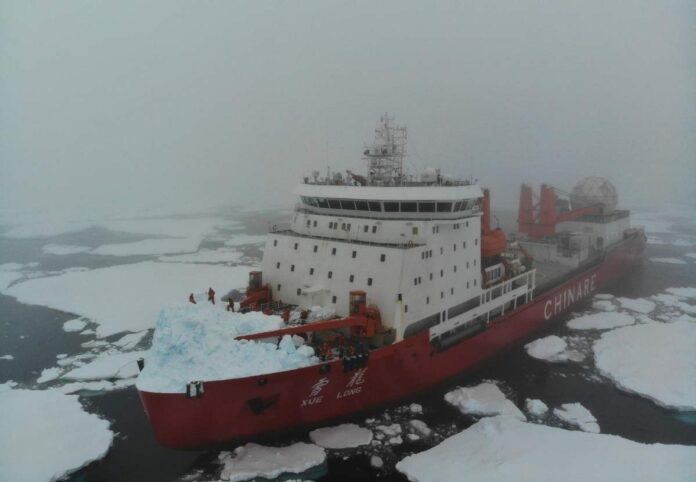Beijing has announced last week its intention to construct a “Polar Silk Road” and actively participate in the development of Arctic and Antarctic regions as part of its new 2021-2025 “five-year plan.”
According to the plan published in Chinese media, China would “participate in pragmatic cooperation in the North Pole” and “raise its ability to participate in the protection and utilization of the South Pole.”
The plans to extend the ambitious Belt and Road Initiative to the Arctic by developing shipping routes were announced back in 2018. China said at the time that it wanted to create new freight routes linking Asia and Europe via the Northeast, Northwest and Central Passages of the Arctic, which raised concerns about the fragile environment of the region. It also said it would encourage enterprises to build infrastructure and conduct commercial trial voyages, paving the way for Arctic shipping routes that would form a “Polar Silk Road.”
Land territories in the Arctic cover an area of around 8 million square km, with sovereignty belonging to Russia, Denmark, Finland, Iceland, Norway, Sweden, Canada and the United States. The Arctic Ocean is more than 12 million square km, and the countries that border it, along with other nations, share maritime rights and interests according to international law.
Despite being a non-Arctic state, China is increasingly active in the polar region. It became an observer member of the Arctic Council in 2013. The country has a major stake in the Russian Yamal liquefied natural gas (LNG) project, which is expected to supply China with four million tons of LNG per year.
At the end of last year, China also announced plans to launch a new satellite to track shipping routes and monitor changes in sea ice in the Arctic. It plans to launch the satellite in 2022.
Focused on trade-boosting infrastructure projects along the path of the ancient Silk Road, the Belt and Road Initiative aims to connect China to Europe, the Middle East and beyond.




